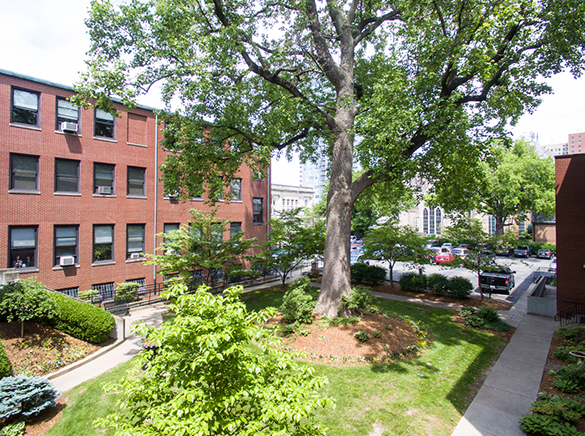
May is Mental Health Awareness Month. In observance of it, Dr. Teah Moore, Director of Spalding University’s new Master of Arts in Clinical Mental Health Counseling program, offers her insights on mental wellness and the role that mental health practitioners can play to support it.
Why is mental health awareness important?
We often lack the knowledge of what mental health is and why it is important. Having an opportunity to emphasize its importance is a great time to educate people about how it plays a major role in our lives and the lives of our love ones.
Can it be common for people not to pay attention to their mental wellness and address the stress and anxieties they may be experiencing?
Certainly. Like other problems we don’t always know that there is a problem. We see this in athletes, such as tennis players. Many players are finding success after giving their mental wellness attention. We also can recall how champion swimmer Michael Phelps has shared that he knew how to succeed in the pool but only through paying attention to his mental wellness, gained essential skills to succeed in life.
The COVID-19 pandemic continues to be a cause of anxiety and isolation for many. What advice or tips do you have for people to stay mentally well at this difficult time?
While it depends on what the anxiety is about, listening to your thoughts is a good start. Really listen to yourself and what you are saying. Thought stopping is a basic exercise for anxiety. When you catch yourself thinking a negative thought, Say Stop it. You would be surprised at how many negative thoughts go through our minds and add to our anxiety. Spend time filling yourself with positive news, entertainment, readings and people. This gives you positive things to think about. For isolation, consider connecting using the tools such as Zoom, Skype and FaceTime. Call people. Don’t worry about being a bother. Go through your contacts and reconnect with people you haven’t spoken to in a while. Plan your day. Plan fun. Find laughter and humor. Learn to live in your whole house. I read where people often use only part of their home. The key word is Live.
What are some ways a mental health professional like a counselor can help an average person, especially someone who has never seen a professional counselor or therapist before and isn’t sure what to expect?
Professional counselors can help normalize what people are experiencing. Feelings and emotions are normal. It’s normal to feel some anxiety. It’s normal to experience loneliness. It’s normal to worry. The professional counselor can explain how we help people get unstuck when emotions, anxiety and worry get overwhelming or when we seem to be in a loop. A professional counselor can help people not only survive but thrive during this pandemic. They can help us answer, “Who or what do you want to be on the other side of this?”
What role do you expect the future graduates of Spalding’s new Master of Arts in Clinical Mental Health Counseling to play in helping our communities and in increasing access to mental health care?
Compassion. We have become such a punitive society and one filled with opinions about the lives of others. I know that Spalding graduates will take caring to a new level. They will ask themselves, “How am I responding or going to respond?” Respond with compassion and not fear, hate or hurt. Increasing access to mental health comes by identifying those that need care and encouraging them to receive care. The stigma and past treatments can be roadblocks. Our graduates will deliver mental health services that see people as people and not as a problem.
Spalding students wanting to connect to a mental health professional are encouraged to contact Center for Counseling and Psychological Services (CaPS) Director Dr. Allison From-Tapp at at [email protected] or (502) 873-4458. Members of the public can contact Spalding’s Center for Behavioral Health (CBH) at [email protected] or (502) 792-7011 to inquire about telehealth services.